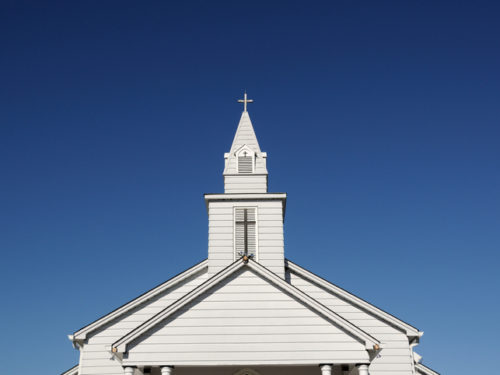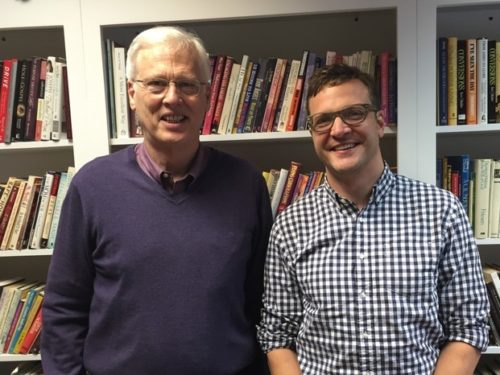 Leadership
Leadership
Passing on a piece of wisdom. Bob Munger was a deeply loved mentor for many curr...
 Leadership
Leadership
By: ECO Team
Artistry is best defined as creativity working within immutable laws of nature. The great artist must be part poet, part engineer. The great artist cannot simply ignore the rule of thirds or the rule of odds. They are well advised to follow the principle of simplification or work to lead the eye. The rules are not pulled from the clear blue sky but the reflect human nature.
As artists follow the rules, they must not be confined, but freed by them. They must use them as a guide to direct and focus their own creative gifts, transcending what has gone before without being ignorant of it. Great artists are in dialogue and relationship with rules and practice.
The same is true for leadership. The leader is an artist as well—poet and engineer. Leadership in the Church is no exception, and perhaps even more so, where creativity is coupled with a paramount awareness of human nature.
It may be at time to adopt a new paradigm of artistry for the Church in particular. For the last century or more, the church leader has felt an obligation to do more—more mission, more program, more music, more outreach, more building, more people. This is self-evident. “More of everything” has been our overriding desire in the church.
This “more of everything” desire lends itself well to the metaphor the painter. We can easily envision a blank canvas with the leaders of the church are charged to fill, frantically, dramatically and powerfully moving their brushes across the white nothingness, and filling it with something. By and large we have wanted to fill every corner and crevice, creating what in art terms is known as a “horror vacui” with no space left untouched.
This technique has not created a strong church. Our attention is divided and our focus diluted. We spend oceans of time on managing a bulging program and leaving little resources for Jesus’ mandate to “make disciples.”
The church leader of our day would be well-served to put down his or her paint brushes and pick up a chisel with which to sculpt. The great Michelangelo summed up the difference between the two when he said, “By sculpture I mean which is fashioned by the effort of cutting away; that which is fashioned by the method of being built up being like painting.”
Michelangelo’s perspective on sculpting was that it was his job to liberate the statue from the marble block in which was confined. He added nothing to the rough, white stone but instead hammered the excess until the statue’s true from was uncovered. Indeed, it’s a well-known story that his classic sculpture David was carved from a giant piece of marble that sat unused and abandoned in a Florentine stoneyard for decades.
In that giant, weathered stone, Michelangelo saw a masterpiece.
I cannot help but believe there are many church masterpieces sitting unrevealed because they are in great need of leaders to gracefully ‘cut away’ programs and ministries that detract from the church’s true form.
This chiseling is a task reserved not only for pastors, but for elders as well. It is much easier for a pastor alone to paint a bold vision for more and more, ever-increasing ministries and programs. A pastor who sculpts will need the support of elders who share a vision for a church that is focused on a simple purpose and intent on finding the beauty of its true form hidden away. This kind of hard and necessary work is no job for any pastor alone. Congregations who seek their best and truest form won’t only try to find the right pastors or staff. They will surround those women and men with the right elders.
ECO wants to partner with pastors, sessions and congregations to create the kind of elders who are leaders with the courage to chisel, leaders with a determined focus upon disciple-making, and leaders who help their congregations discover their true form and purpose. We offer two resources to assist in this endeavor: Elder Leadership Institute and Becoming a Flourishing Church. Chiseling is hard work and is new to many of us, so ECO offers you help for your journey towards sculpting.
If you want to learn more about Elder Leadership Institute, please contact Eric Laverentz at Eric@elderleadership.org.
If you want to learn more about Becoming a Flourishing Church, contact Lisa Johnson at Lisa@eco-pres.org.
We both would be thrilled to talk with you and help you find the right resources to help your church form into the masterpiece God intends it to be!
 Leadership
Leadership
Passing on a piece of wisdom. Bob Munger was a deeply loved mentor for many curr...
 Leadership
Leadership
Developing spiritual leaders at the Elder Leadership Institute How can a triad o...
 Leadership
Leadership
What makes a missional leader? This past Sunday, our church gathered together to...